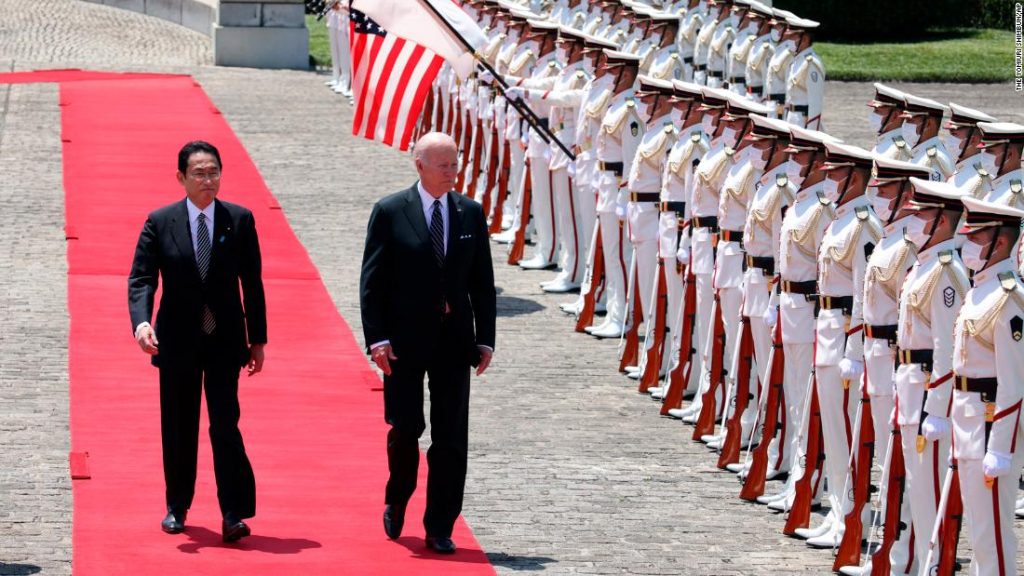The economic framework comes with a similar goal. Since President Donald Trump withdrew the United States from the Trans-Pacific Partnership — the massive trade agreement negotiated during the Obama presidency — the United States has been without a concrete plan to engage this region economically.
Meanwhile, China has concluded many trade agreements with its neighbors and has sought to exercise its economic influence globally through the Belt and Road Initiative.
The plan that Biden will announce on Monday is not a trade agreement in the traditional sense. It includes one “pillar” related to trade, but also includes other areas such as making supply chains more resilient, promoting clean energy, and fighting corruption.
By revealing the framework, Biden appears to acknowledge he has little intention of joining the Trans-Pacific Partnership, which remains unpopular among US lawmakers who will need to ratify the deal. Instead, he hopes to create an economic sphere that can rival China.
This will require persuading other countries to join – not just loyal partners like Japan and South Korea but smaller countries, particularly in Southeast Asia, who are not closely allied with the United States.
Early critics of the plan noted that it lacked any incentives – such as lower tariffs – in exchange for joining. Biden aides suggest that there are other ways to facilitate more trade and market access, and that the framework itself provides an attractive opportunity for participating countries to work more closely with the United States. And if anything, Biden’s announcement on Monday reflects just the beginning of the plan writing process.
Indeed, China has responded strongly to the framework, with a senior envoy describing it as a “closed and exclusive clique.”
National Security Adviser Jake Sullivan told reporters on Air Force One while Biden was traveling from South Korea to Japan that the criticism was expected.
“It is no surprise to me that China has concerns about the number of countries, and the diversity of countries that have expressed interest and enthusiasm for IPEF,” he said. “It’s only natural that they will try to find ways to ask questions.”




/cdn.vox-cdn.com/uploads/chorus_asset/file/25550621/voultar_snes2.jpg)


More Stories
Two children killed, 11 injured in stabbing attack at Taylor Swift dance party in UK, 17-year-old arrested
Fiber optic communications networks are being sabotaged – DW – 07/29/2024
Putin warns US against deploying long-range missiles in Germany | NATO